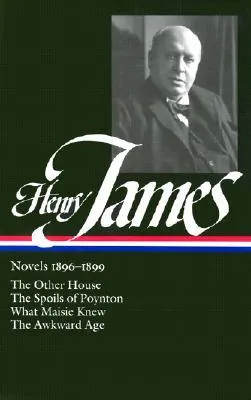Novels 1896–1899: The Other House / The Spoils of Poynton / What Maisie Knew / The Awkward Age
By (author): "Myra Jehlen, Henry James"
Publish Date:
1899
ISBN1931082308
ISBN139781931082303
AsinNovels 1896–1899: The Other House / The Spoils of Poynton / What Maisie Knew / The Awkward Age
Original titleNovels 1896–1899: The Other House / The Spoils of Poynton / What Maisie Knew / The Awkward Age
This Library of America volume collects four novels written by Henry James in the period immediately following his unsuccessful five-year-long attempt to establish himself as a playwright on the London stage. Hoping to convert his “infinite little loss” into “infinite little gain,” James returned to the novelistic examination of English society with a new appreciation for what he called the “divine principle of the Scenario,” “a key that, working in the same general way fits the complicated chambers of both the dramatic and the narrative lock.”His continued interest in dramatic form is demonstrated in The Other House (1896), which was derived from the scenario for a three-act play. Set in two neighboring houses and told mostly through dialogue, the novel explores the violent and tragic consequences of jealousy and frustrated passion. In The Spoils of Poynton (1897), one of the most tightly constructed of James’s late novels, a house and its exquisite antique furnishings and artwork become the source of a protracted struggle involving the proud and imperious Mrs. Gereth, her amiable son, Owen, his philistine fiancée, Mona Brigstock, and the sensitive Fleda Vetch, whose moral judgment is tested by her conflicting allegiances.What Maisie Knew (1897) explores with perception and sensitivity the effect upon a young girl of her parents’ bitter divorce and their subsequent remarriages. In writing the novel James chose as his point of view what he described as “the consciousness, the dim, sweet, scared, wondering, clinging perception of the child.” The Awkward Age (1899) examines the complicated relations among the members of a sophisticated London social circle almost entirely through dialogue as it depicts the shifting marital prospects of a young woman poised on the verge of adult life. Both of these novels insightfully explore the ambiguity of childhood “innocence” amid adult struggles over money, power, and love.
